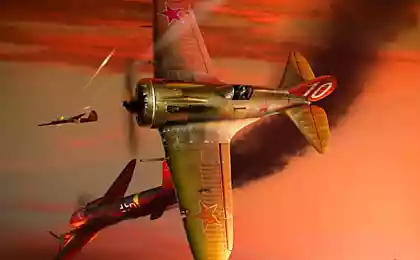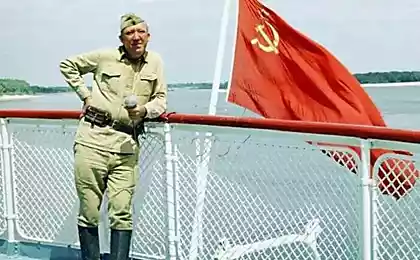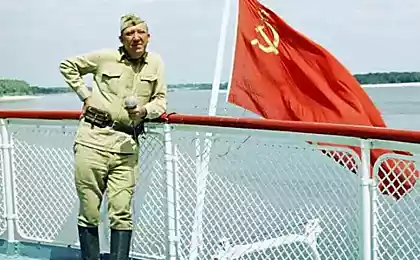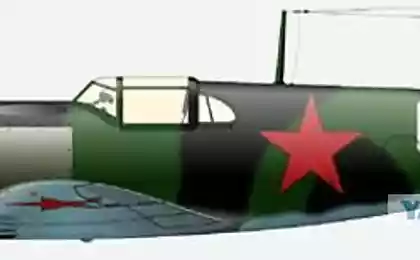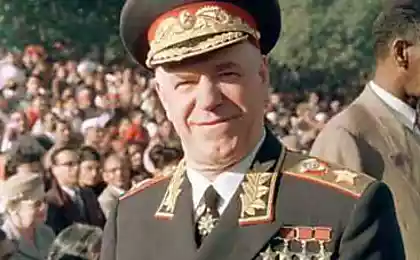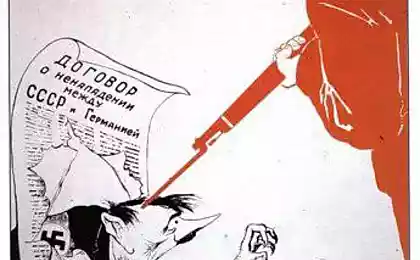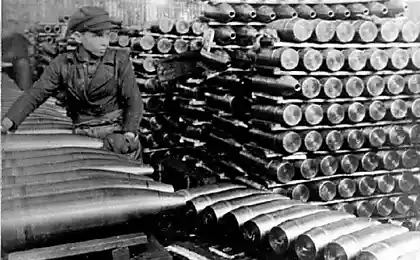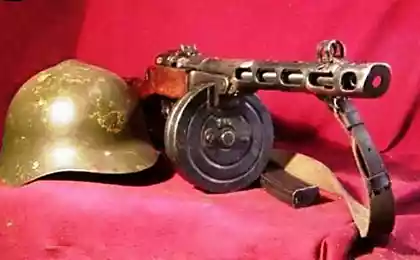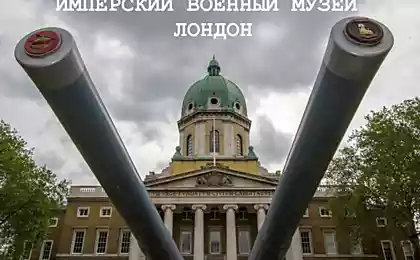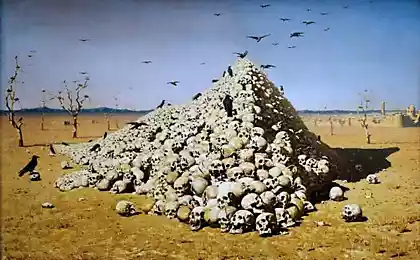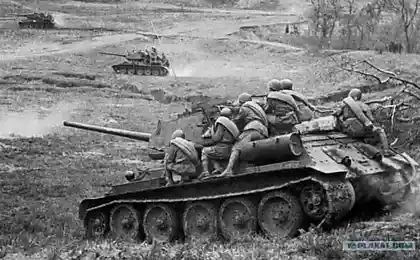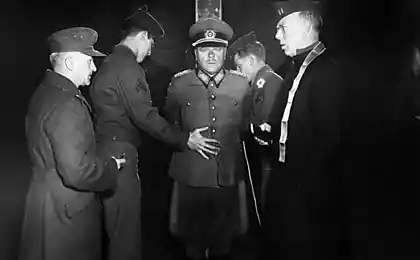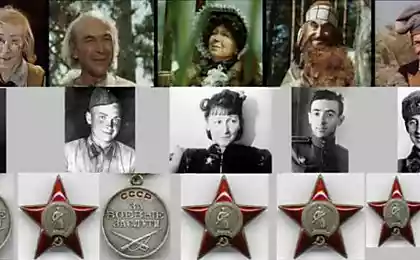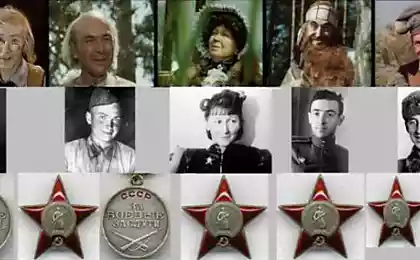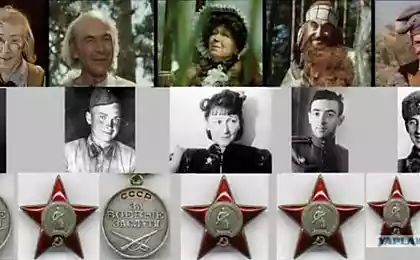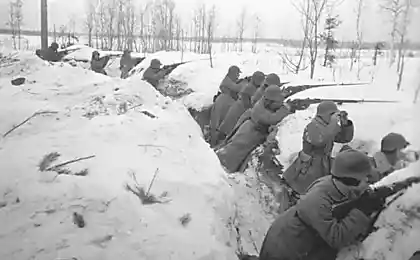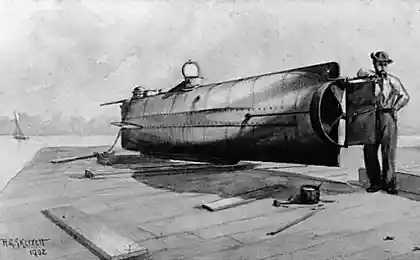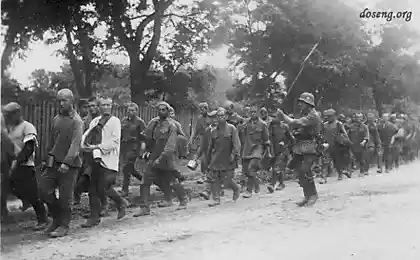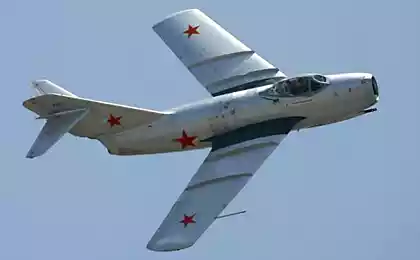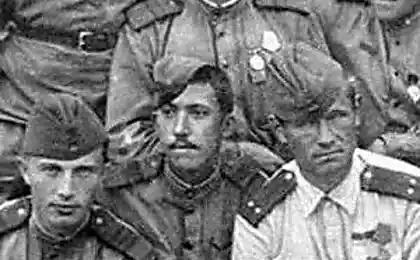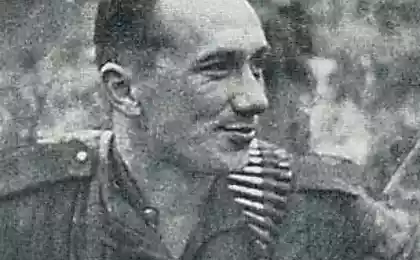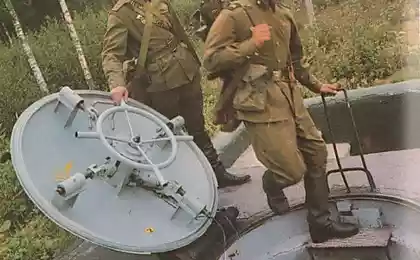860
The scenery of the last war
Photos from the place where the power of the Soviet Union tested nuclear
In late June, Kazakh President Nursultan Nazarbayev called for the development of the territory, which was formerly Semipalatinsk nuclear test site. The head of state at the same time referred to the statements of scientists, who claim that the area already cleared by radiation. Meanwhile, neither in Soviet times, when the testing of nuclear weapons were under way or in the post-Soviet years with the landfill no resettle - people continued to live there. In the most dangerous areas of the former landfill radioactivity still comes to 10 000 - 20 000 micro-roentgen per hour. Total from 1949 to 1989 there was made not less than 456 nuclear tests - land, air underground. The total capacity of nuclear warheads exploded here only during the period from 1949 to 1963, 2,500 times higher than the power of the atomic bomb dropped on Hiroshima.
20 photos of lentaru
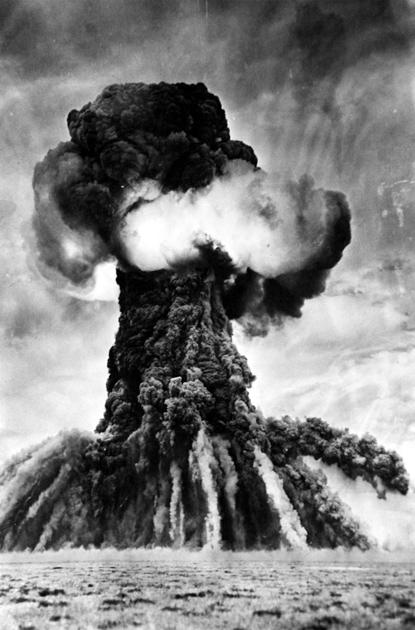
The place where the Feb. 12, 1989 after a nuclear explosion spewed radioactive inert gases
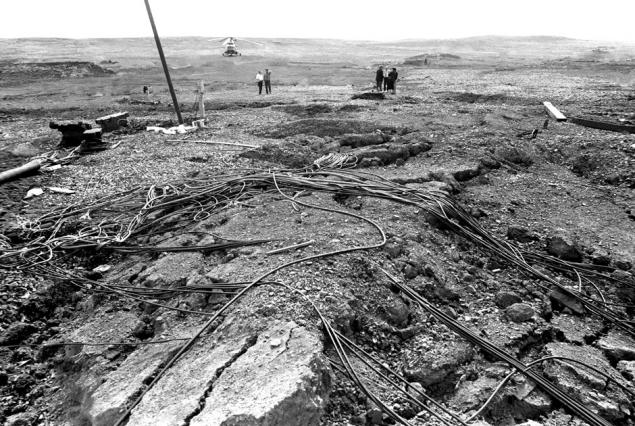
In 1968 at the Semipalatinsk test site was carried out an underground nuclear explosion. At 20 kilometers from the epicenter of the explosion was a village Sarzhal. The picture shows the consequences of a nuclear explosion in the vicinity of the village
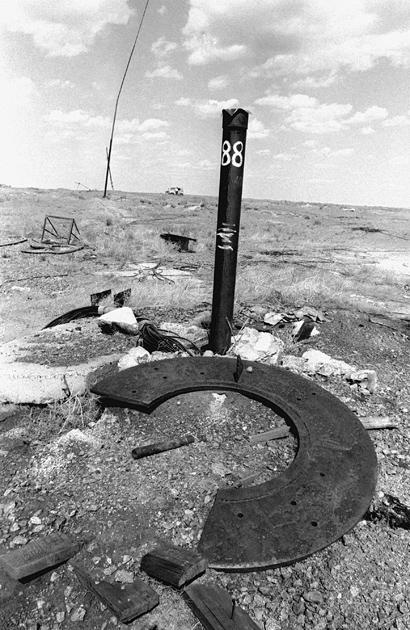
Remains of production facilities at the Semipalatinsk nuclear test site
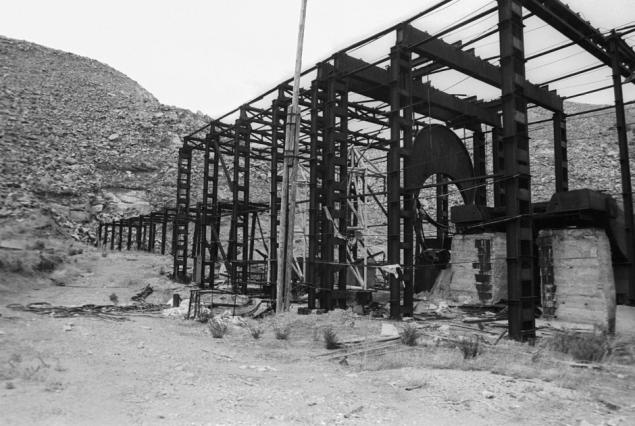
Here, a distance of seventy kilometers from the village Kaynar, in 1976, a series of underground explosions
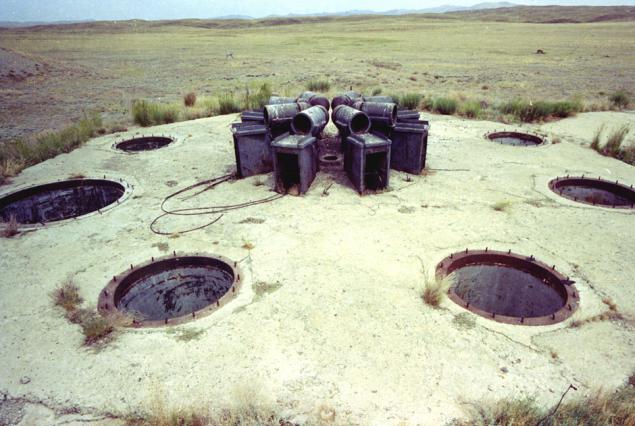
1991. The visit of Soviet and foreign journalists at the venue of the first underground nuclear test
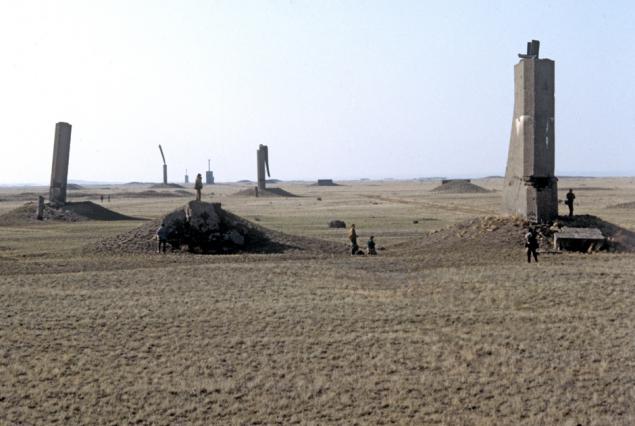
This crater was formed as a result of underground nuclear explosion conducted in 1968
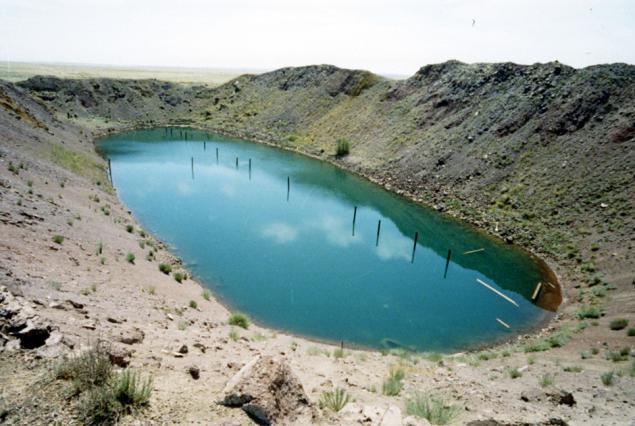
Center of Semipalatinsk nuclear test site - the city of Kurchatov
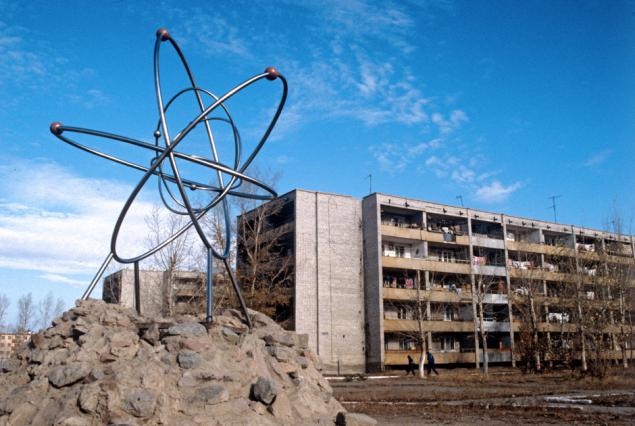
year 2001. Vacuum channel output power of a nuclear explosion
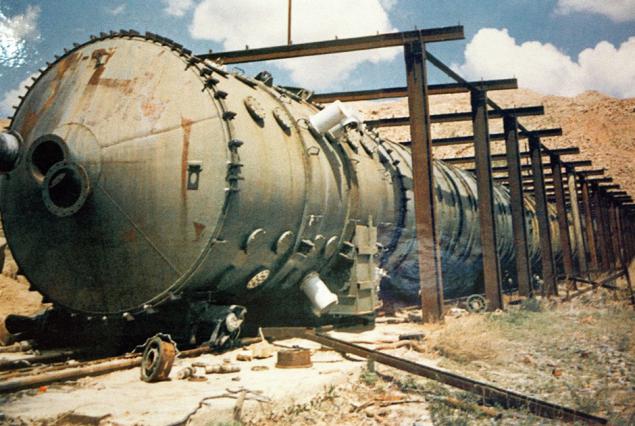
Public field Semipalatinsk nuclear test site in Kazakhstan, where in 1961, was first produced ground explosion Soviet atomic bomb
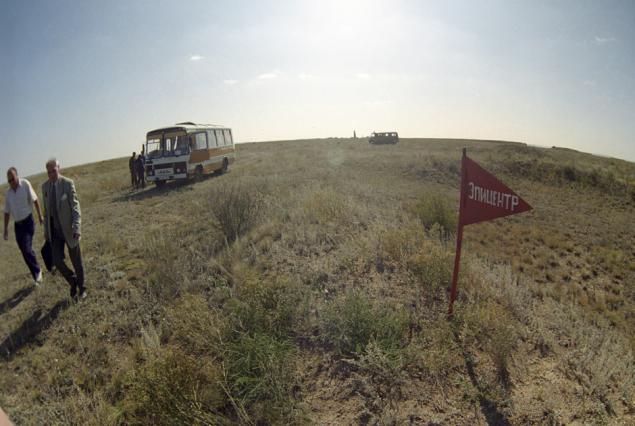
After many years of nuclear tests at the Semipalatinsk test site nearby residents were exposed to radiation. In the photo: shepherd family farm "Abralinsky" thirty-one does not get out of bed this invalid
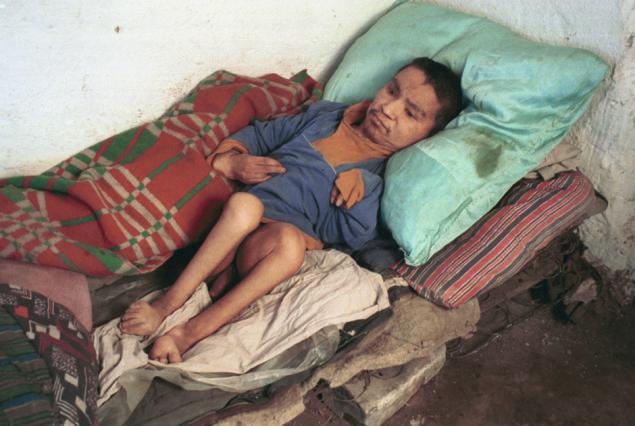
Kazakh artist, an activist of the international anti-nuclear movement, disabled Karipbek Kuyuk
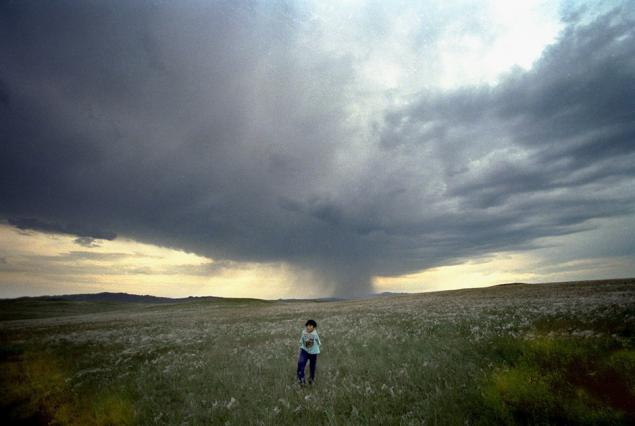
Hands had no birth. Pictures Karipbek Kuyuk says, holding the brush teeth or toes
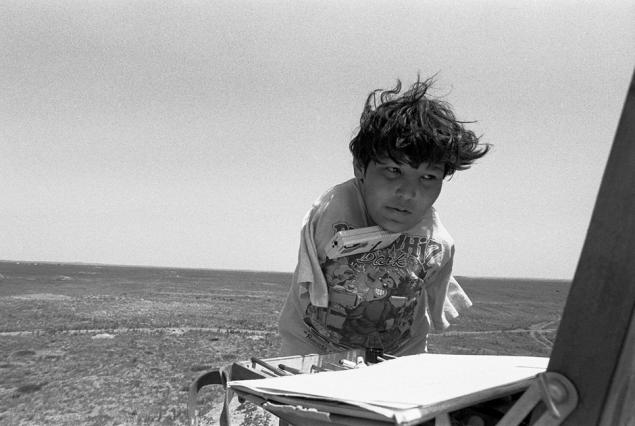
2008. Experts Comprehensive Nuclear-Test-Ban Treaty Organization in Semipalatinsk
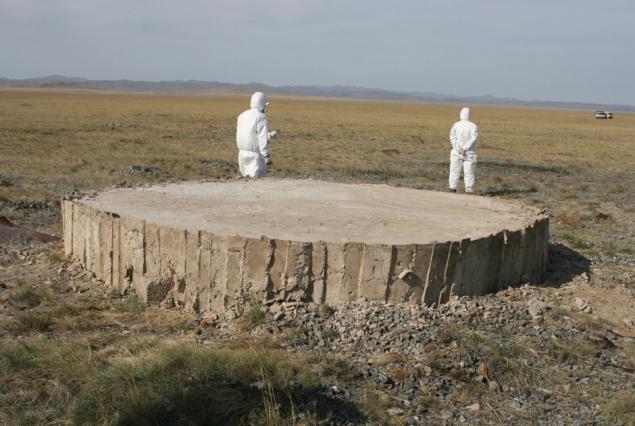
The main attraction of the former landfill - "atomic" lake, which is located on the test site "Balapan". It was formed as a result of the explosion of thermonuclear warhead capacity of 140 kilotons in 1965
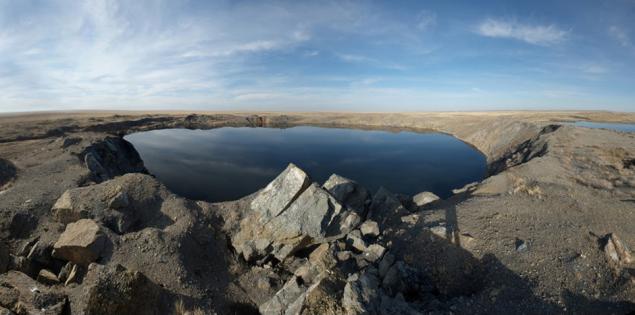
With the help of reinforced concrete structures was measured shock wave of a nuclear explosion
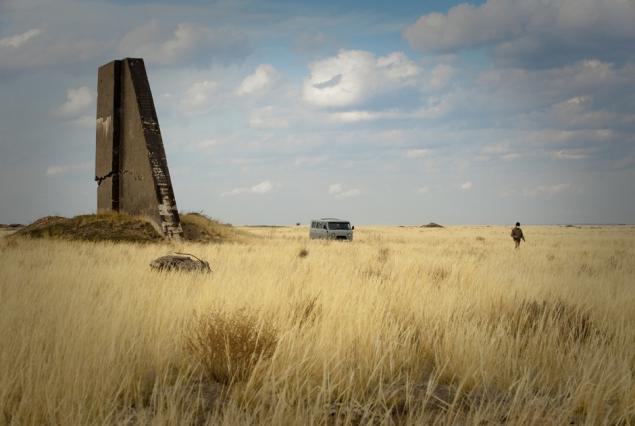
In this building there were instrumentation
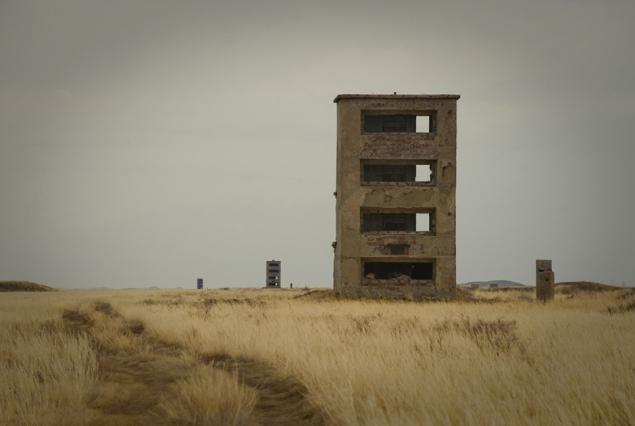
Such a structure called the "goose»
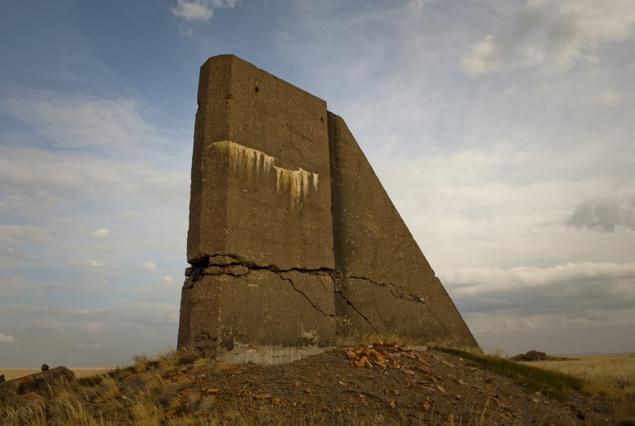
In the city of Kurchatov
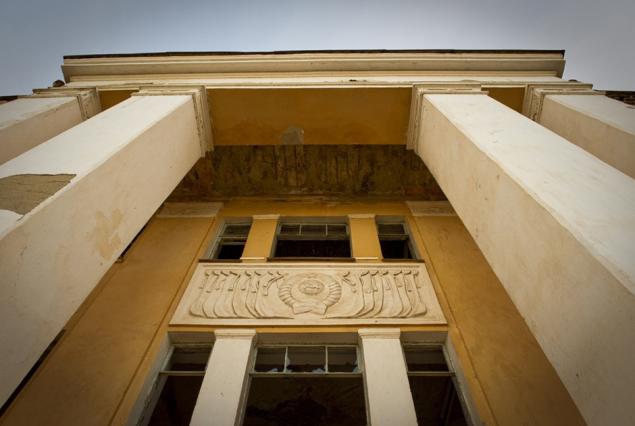
In 2000, at the site it was destroyed last tunnel for nuclear testing
The end.
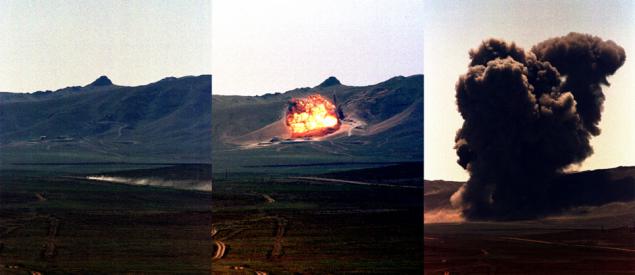
Source:
In late June, Kazakh President Nursultan Nazarbayev called for the development of the territory, which was formerly Semipalatinsk nuclear test site. The head of state at the same time referred to the statements of scientists, who claim that the area already cleared by radiation. Meanwhile, neither in Soviet times, when the testing of nuclear weapons were under way or in the post-Soviet years with the landfill no resettle - people continued to live there. In the most dangerous areas of the former landfill radioactivity still comes to 10 000 - 20 000 micro-roentgen per hour. Total from 1949 to 1989 there was made not less than 456 nuclear tests - land, air underground. The total capacity of nuclear warheads exploded here only during the period from 1949 to 1963, 2,500 times higher than the power of the atomic bomb dropped on Hiroshima.
20 photos of lentaru

The place where the Feb. 12, 1989 after a nuclear explosion spewed radioactive inert gases

In 1968 at the Semipalatinsk test site was carried out an underground nuclear explosion. At 20 kilometers from the epicenter of the explosion was a village Sarzhal. The picture shows the consequences of a nuclear explosion in the vicinity of the village

Remains of production facilities at the Semipalatinsk nuclear test site

Here, a distance of seventy kilometers from the village Kaynar, in 1976, a series of underground explosions

1991. The visit of Soviet and foreign journalists at the venue of the first underground nuclear test

This crater was formed as a result of underground nuclear explosion conducted in 1968

Center of Semipalatinsk nuclear test site - the city of Kurchatov

year 2001. Vacuum channel output power of a nuclear explosion

Public field Semipalatinsk nuclear test site in Kazakhstan, where in 1961, was first produced ground explosion Soviet atomic bomb

After many years of nuclear tests at the Semipalatinsk test site nearby residents were exposed to radiation. In the photo: shepherd family farm "Abralinsky" thirty-one does not get out of bed this invalid

Kazakh artist, an activist of the international anti-nuclear movement, disabled Karipbek Kuyuk

Hands had no birth. Pictures Karipbek Kuyuk says, holding the brush teeth or toes

2008. Experts Comprehensive Nuclear-Test-Ban Treaty Organization in Semipalatinsk

The main attraction of the former landfill - "atomic" lake, which is located on the test site "Balapan". It was formed as a result of the explosion of thermonuclear warhead capacity of 140 kilotons in 1965

With the help of reinforced concrete structures was measured shock wave of a nuclear explosion

In this building there were instrumentation

Such a structure called the "goose»

In the city of Kurchatov

In 2000, at the site it was destroyed last tunnel for nuclear testing
The end.

Source:
